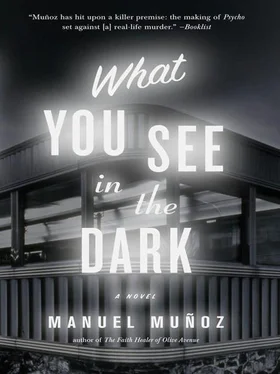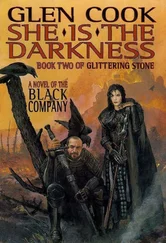All around, some of the younger women rested their heads on the shoulders of their dates. Out of boredom, maybe, especially when Ricky Nelson was not on the screen. Four rows ahead, Dan Watson slipped his arm around that girl, and she tensed, then eased. You tensed, then eased, sensing the heat on the back of your own neck. Some of the younger women drew even closer to their dates, nestling. They didn’t care who watched. The married couples sat stiff and proper, two rigid silhouettes. Was marriage love? A wife’s shoulders rounded, her body almost curled in, as if protecting the purse in her lap. The young women in the audience ignored John Wayne’s gun brandishes and concentrated on the heat near the back of their necks. Dan Watson’s arm. Handsome, but not like Ricky Nelson. Rugged and not soft, not moist lipped, not a transfixing star.
Not a whistle-clean Everly Brother either.
If all the women in the audience stared at Ricky Nelson sitting on top of a kitchen table, so did you. Boots resting on a chair, he played guitar for Dean Martin. Your eyes drifted south to his open legs, wanting to study every part of his body, his shape. The theater was dark. This is what people did in the dark. He spoke Spanish, and even that fact — that soft voice saying things you could only dream, candy-sweet and loving — gripped the women in its delicious possibility. That girl knew Spanish. She would know what candy-sweet things he could say. After the first song, Dean Martin ceded the screen to just Ricky, still seated at the table, and all around the theater, women lifted their heads from their dates’ shoulders. Ricky alone meant love was coming. Ricky alone meant being torn between the guitar resting on his thigh and the proximity of his long lashes.
The cut of his suede jacket, the dance of its fringe, the round shape of his buttocks when he crossed the room, the angle of his boots on the floor, his youthful face a testament against the coarser ways of older men like John Wayne.
Your boyfriend, your soon-to-be husband, was going to be a John Wayne. You’d already come round to meet the new in-laws, the small, quick-witted mother with the pinched face, the tall father with the gigantic belly, suffering through a forced grapefruit diet. “I have the insides of a steel pipe,” he bragged, but in the bathroom of their home, you glimpsed a faint brown smear at the bottom of the toilet.
A vulgar fact. The ugly privacy of marriage.
The two brothers living in suspicious bachelorhood, one going up to San Francisco to live luridly, the other quietly expected to care for their parents once they aged.
Understood facts, no matter that they were vulgar. People said that was what San Francisco was becoming.
So it must be true.
No wonder people applauded the picture when it ended. No wonder they stood up in an excited buzz, the film a respite from their lives, the ugly things they knew. No wonder the crowd took its time to file out of the theater, the house lights brought up, the tiny stars on the ceiling extinguished. Handsome men with mustaches, cowboy hats, shiny belt buckles, all of them walking protectively behind their dates, all of them guarding the women they intended to marry. At the theater, a date was for display. Not like at the drive-in, not like at the grocery store, not like at the café. But eyes everywhere locked on each other in regard, men looking from the safety of where they stood, behind their dates. How many times had men looked at that girl, looked up to see Dan Watson looking back at them, their eyes filled with a different knowing?
Traffic rumbled, headlights all along Union Avenue, as patient as the lines to exit the theater. Some cars drove off toward the Bluebird, toward El Molino Rojo. Married couples drove on to the side streets to their dark homes, the taillights lonely along the road. Everyone else, it seemed, had headed to the Jolly Kone, all the ones in between, too young to be going to the bars so late, too young to be married quite yet.
That was the night in question. People went to the bars to drink or to the Jolly Kone for a burger or right on home. Good married couples went right on home.
None of the ladies who came to the shoe store ever knew about the Jolly Kone. They never knew about the drive-in. The things that went on in both places. You never said a word about the boyfriend taking you there.
The large neon sign lit bright in yellow and blue, an ice cream cone with a grinning, welcoming face. Large orange heaters glowed overhead at the order windows, all the young men with hands in their pockets to keep themselves warm. Dan Watson and that girl had eased right into one of the choice slots, right under the awning near the door.
At the window, a large-breasted teenage girl, blue paper hat pinned in place. She grinned slyly at Dan Watson, her mouth suggesting a banter than involved more than the order. He leaned in, looking up at the posted menu as if he’d forgotten what to say. The waitress stared at his Adam’s apple, not minding the wait, but she glanced over at the Ford where that girl sat, as if she’d felt a stern glare coming at her, and the unspoken possession brought her back to jotting in her notepad, closing the window. Dan Watson stood outside under the orange heaters, waiting, and once again it was all there for everyone to see: how steady and strong his back looked, his plaid shirt pressed and tucked in snug at the waist. He was taller than Ricky Nelson, surely, but a survey of the other men milling around, carrying food back to their cars, showed how he stood out. That one was squat and powerful in the legs; another too thin and slender in the chest; yet another had wide, flat buttocks.
Everyone hungry, everyone eating. Dan Watson walking back to the Ford with a box of burgers and greasy fries. The Jolly Kone ice cream sign looked down at everyone with its neon grin.
In the car, your whistle-clean boyfriend pointed to the paper cup of soda lodged between his legs, the two straws poking out of it.
“Thirsty?” he asked.
The pretty, large-breasted waitress shot a stare over at the Ford.
“I’m kidding,” he said, but his hand slid over in the shadowy darkness of the car and settled on your knee.
“Not with all these people around,” you said.
“Nobody can see,” he said, and this was true. People held greasy napkins, sloshed leftover soda; some actually stood outside their cars, necking out in plain view under the yellow and blue sign of the Jolly Kone. Some cars already pulled themselves out of the lot, heading out to the western part of town, to the emptier side, where they could pull into the darkness.
“You getting shy now?”
“Not here.”
Not there. You watched the Ford retreat from the front of the Jolly Kone. You watched that girl give one last glare to the pretty waitress as the truck pulled away into the dark. You watched the Ford head back in the direction of that rented room above the bowling alley, the roads considerably cleared, and you could see the truck park in front of the green door leading up to that apartment.
You can see Dan Watson shutting off the engine. You can see the deserted street.
No, you were not there. But you could see it.
And that made it a fact, if you told it.
He stepped out, walking to her side of the truck. He opened her door and held out his hand and she took it. A large, sweaty hand. Strong. Not the hand of someone who could play a guitar softly.
At the shoe store, that girl had always patted her purse as if it contained something secret. Repeatedly. An assurance. What was in there, of course, was her apartment key.
That key slid into the lock of that green door and snapped it open, Dan Watson behind her, his arm above her frame.
The stairwell loomed dark, and what you do with darkness is pitch yourself into it.
Читать дальше












